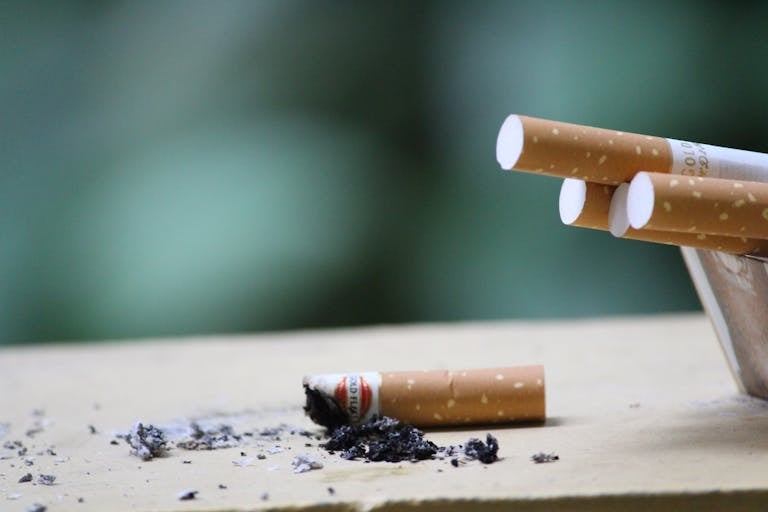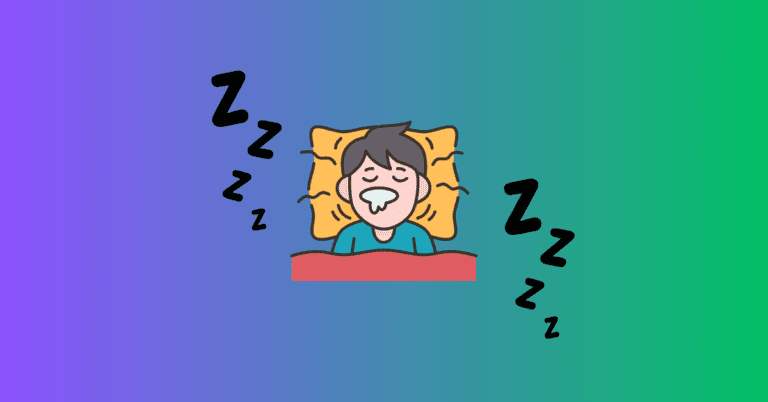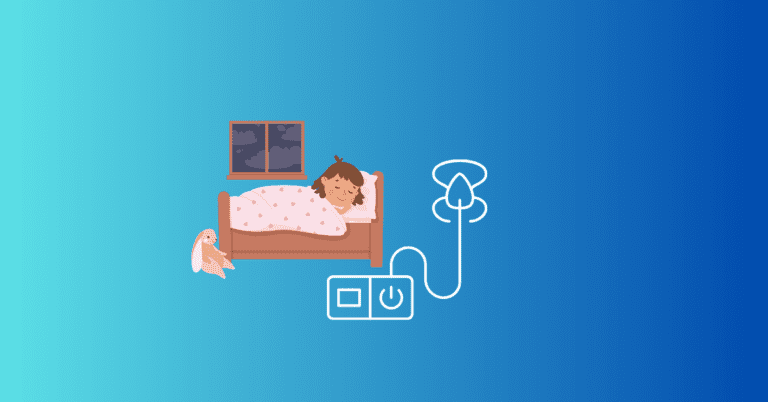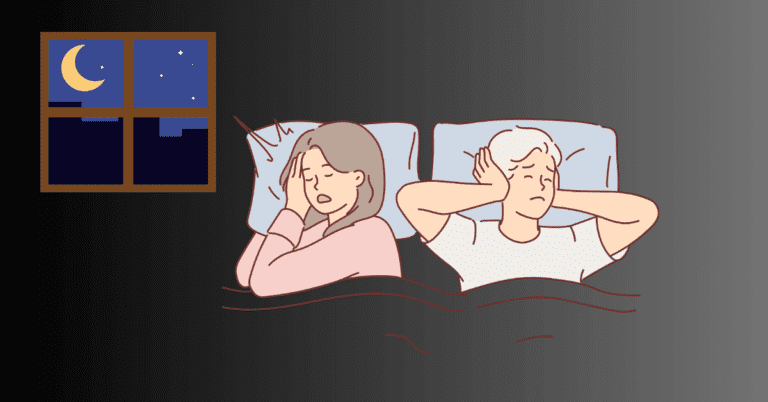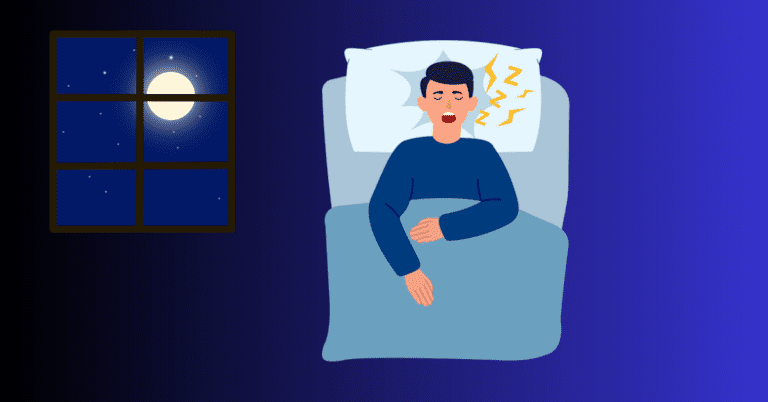Teeth Grinding and Sleep Apnea: My Personal Experience
Teeth grinding and sleep apnea are two conditions that can go hand in hand. Also known medically as bruxism, teeth grinding can also lead to expensive dentistry costs!
I learned this the hard way when my dentist pointed out the damage to my teeth and asked if I knew I ground my teeth.
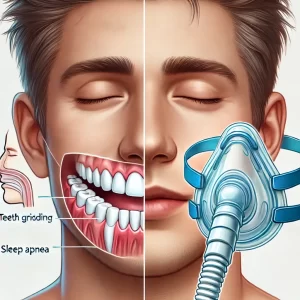
I wasn’t surprised to hear it, as in the old days, I often woke up with a sore jaw and morning headaches. What I didn’t know back then was that teeth grinding and my severe sleep apnea were closely linked.
It’s not uncommon to assume that teeth grinding is caused by stress or anxiety. Many of us think it’s just one of those things we need to live with.
But when I found out that my nightly teeth grinding was a result of sleep apnea, things started to make sense.
The two conditions are connected in ways that many people don’t realize, and if left unchecked, they can both lead to serious health issues.
Understanding the Connection Between Teeth Grinding and Sleep Apnea
When I first discovered I had sleep apnea, I thought it was just a matter of snoring and feeling tired.
I had no idea that my nightly teeth grinding—something I assumed was caused by stress—was actually a sign of something more serious.
It turns out that teeth grinding and sleep apnea often occur together. Here’s why:
During obstructive sleep apnea (OSA), the airway becomes blocked, which stops you from breathing normally.
When this happens, your body wakes up slightly to restore airflow, causing a surge of muscle activity, including in the jaw.
As a result, you may grind or clench your teeth without realizing it. This can happen multiple times throughout the night.
For me, that meant not only waking up feeling unrefreshed but also damaging my teeth over time.
Grinding my teeth during these micro-awakenings also left my jaw sore and tense in the morning—a sensation I’ve unfortunately become all too familiar with.
The Science Behind the Link
When the airway is blocked during sleep apnea, the brain triggers a “fight or flight” response to get you breathing again.
This response leads to increased muscle tension, which includes the jaw muscles. The grinding or clenching of teeth is the body’s way of trying to cope with the stress of not getting enough oxygen.
So, teeth grinding is more than just a sign of stress; it’s a physiological response to a lack of airflow.
Over time, this can lead to serious dental issues, including worn-down teeth, gum recession, and even tooth loss.
Symptoms of Teeth Grinding and Sleep Apnea
If you experience teeth grinding and suspect you might have sleep apnea, pay attention to the following symptoms:
Sore Jaw or Face Pain
Do you wake up with discomfort in your jaw or facial muscles? This was one of my first clues that something wasn’t right. Persistent jaw pain in the morning can be a sign that you’ve been grinding your teeth throughout the night.
Morning Headaches
Frequent headaches in the morning can be a sign of nighttime teeth grinding. The tension caused by clenching your jaw while you sleep can radiate through your temples and forehead, leading to those dreaded morning headaches.
Excessive Daytime Sleepiness
Feeling unusually tired during the day, even after a full night’s sleep, could be a red flag for sleep apnea. Sleep apnea prevents your body from getting restorative sleep, leading to constant daytime fatigue.
Teeth Damage or Sensitivity
Worn-down teeth, chipped enamel, or increased tooth sensitivity are common in people who grind their teeth. For me, this meant toothaches and an unpleasant sensitivity to hot and cold foods.
Loud Snoring or Gasping for Air
If you snore loudly or wake up gasping for air, you may be dealing with sleep apnea. This is a sign that your airway is being obstructed and your body is struggling to get enough oxygen.
These were all symptoms I faced, and while it was easy to brush them off as normal wear and tear or just “not sleeping well,” they were telling me something much more significant.
My Challenges with Using a Mouth Guard for Bruxism
When my dentist suggested using a mouth guard to protect my teeth from grinding, I ran into an unexpected challenge:
I use a full-face CPAP mask for my sleep apnea treatment.
Unfortunately, wearing both a mouth guard and a full-face mask isn’t practical. The mouthpiece would interfere with the seal of the mask, rendering my CPAP therapy ineffective. What’s more, I would probably choke!
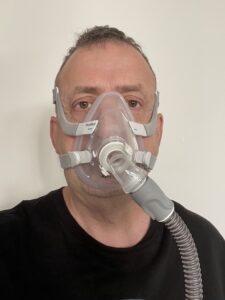
This is me with my mask on. Forgive me for not smiling!
After consulting with my sleep specialist and dentist, I learned that the best solution for people like me is to focus on optimizing my CPAP therapy to reduce the frequency of teeth grinding.
Treatment Options for Teeth Grinding and Sleep Apnea
So, what do you do when a mouthguard isn’t an option? Fortunately, there are several treatment strategies for managing both teeth grinding and sleep apnea effectively.
1. Optimize Your CPAP Therapy
For those of us who rely on CPAP therapy, ensuring the correct pressure settings and a comfortable mask fit is crucial.
I’ve found that using my full-face mask consistently has reduced the number of times I wake up during the night, which means less clenching and grinding.
2. Address Underlying Sleep Apnea Symptoms
Since the root cause of teeth grinding is often related to sleep apnea, getting the apnea under control can significantly reduce bruxism.
If CPAP isn’t working for you, consider exploring other treatments like oral appliances or positional therapy (though remember, oral appliances may not be compatible with your mask).
3. Use a Nasal or Pillow Mask (If Feasible)
If your CPAP therapy would allow it, switching to a nasal or nasal pillow mask might make it possible to wear a mouth guard simultaneously. However, this might not be an option for those with severe apnea who need a full-face mask.
4. Stress Management Techniques
Since stress can exacerbate both sleep apnea and teeth grinding, incorporating relaxation techniques like meditation, deep breathing, or progressive muscle relaxation can be beneficial.
5. Consider Behavioral Therapy
Behavioral therapy can help reduce teeth grinding by addressing the habits and triggers that lead to it. Techniques like biofeedback, cognitive-behavioral therapy (CBT), or even guided relaxation exercises can help alleviate nighttime bruxism.
6. Use Alternative Therapies
Some individuals find relief through alternative therapies such as acupuncture or chiropractic care. While I haven’t personally tried these, some studies suggest that acupuncture can reduce jaw tension and improve sleep quality.
Expert Tips to Manage Both Conditions
- Get a Sleep Study: If you haven’t already, consider undergoing a sleep study to understand the severity of your sleep apnea and bruxism.
- Consult with Specialists: Work closely with both a sleep specialist and a dentist to create a comprehensive treatment plan.
- Monitor Your Symptoms: Keep track of your symptoms, such as jaw pain and morning headaches, to see if your treatment plan is effective.
- Stick to Your CPAP Therapy: Consistency is key. Make sure your mask is comfortable, and if you have issues with leaks or discomfort, talk to your provider about adjustments.
- Prioritize Sleep Hygiene: Create a relaxing sleep environment and stick to a regular sleep schedule. Good sleep hygiene can reduce the likelihood of both apnea and teeth grinding.
My Takeaway
Living with both teeth grinding and sleep apnea is challenging, but it’s manageable with the right approach.
For me, the priority was finding a way to continue using my CPAP therapy effectively while minimizing the impact of bruxism. While I couldn’t use a mouthguard, focusing on improving my sleep quality and reducing stress has made a noticeable difference.
If you’re struggling with similar issues, know that there’s no one-size-fits-all solution. Speak with your healthcare providers, explore your options, and most importantly, don’t ignore the symptoms. Your sleep and overall health are worth it.
For me, as I have severe sleep apnea, treating this is more important than bruxism, but as I have a full face mask, it kind of treats both of these conditions at the same time.
Let me know in the comments if you have had any challenges with teeth grinding and perhaps, how you overcame it.

